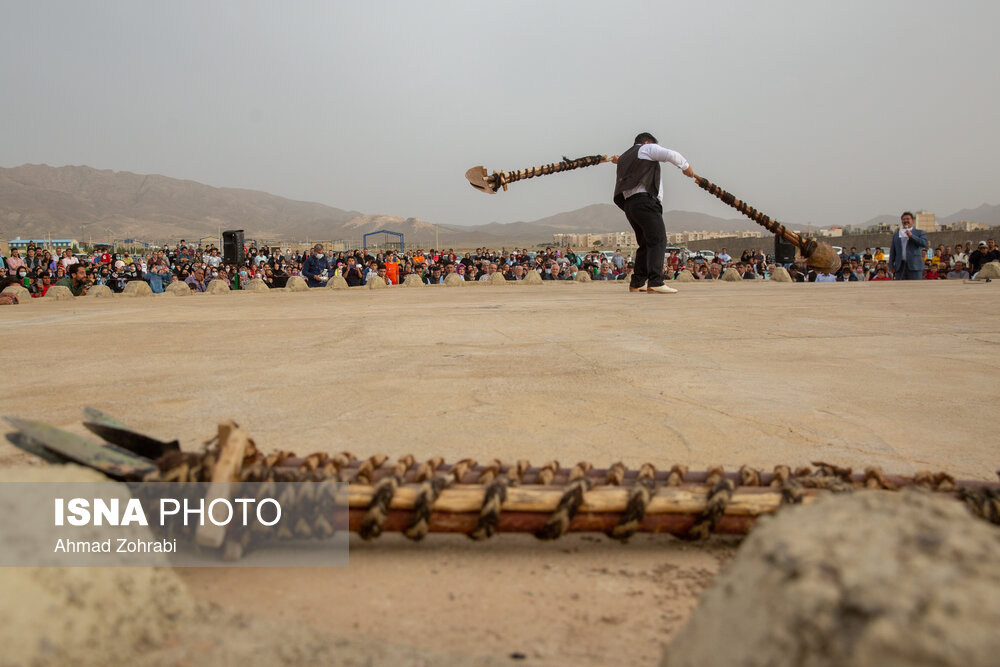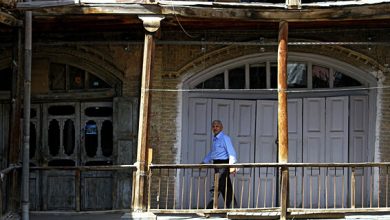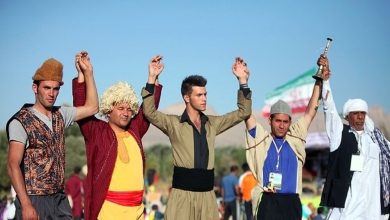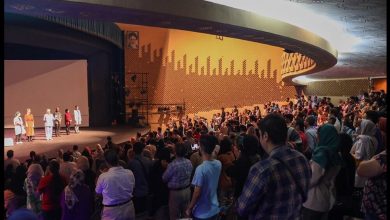

‘Shoveling’ is a two-thousand-year-old ritual that takes place in the city of Nymphar, Central Province, and was registered in the country’s Intangible Heritage List in 2009. This ancient religion has its roots in people’s beliefs and is linked to their profession of farming.
Mehdi Lalbar, head of the Cultural Heritage Agency in the city of Mahallat and a member of the Nimfar dredging headquarters, explained about this ritual in a conversation with reporters: This ritual is related to the work and life of the Nimfar people, and it is also considered a kind of sport. On the one hand, it was a display of the power of the people of Nymvar to those who were handicapped by the waters of Nymvar, and on the other hand, it was also considered a holiday of thanksgiving. In addition, it was a kind of water that asked God to send more rain in the new planting season so that agriculture would not flourish in this city.
He continued: The dredging ceremony takes place every year after the end of the main stream of Nimfar. The Nimvar Dam, which is enclosed on the Lalpar River, has been diverted to farmland (about 18 km) and every year it turns to mud and has to be dredged so that water can reach the farmland. According to the law they had established among themselves, the farmers divided the labor so that each person raked barley according to the area of his farmland.
Lallbar added: After the dredging work was completed, the farmers used to come to the main square of the city, which was once called the “Chali Qanawat” square, and then gather in Pamanar. Seven shovels are then tied together in groups of three and four with goat hair (three in the left hand and four in the right hand), and their weight was between 25 and 30 kg. Then they rotate these scoops over their heads in a special way that requires special skill as well as a lot of strength. A person may have a lot of power but not be able to do it.
The representative of the cultural heritage of Mahallat said about the beliefs that play a role in this ceremony: There are many beliefs and philosophies for choosing “seven numbers of spades” among people; One is that the number seven is sacred to Iranians in general, and it also represents the seven heavens, which leads to prosperity in agriculture with blessings, and it is also a symbol of seven days and nights. On the other hand, there is Haft Dang agricultural land in Nimfar, and this is another reason to choose Haft and Nimfar even has Haft Joy water.
According to a member of the Nimvar dredging staff, in the past, the Nimvar aquifer was muddy and as many as 120 people would go dredging. But today, the atmosphere has thinned and the number of farmers has decreased, shoveling is not done by hand as in the past. Also, in the past, dredging was performed in the month of March, and the dredging ceremony was performed immediately afterwards, but in recent years the People’s Headquarters has been formed at Nymvar for dredging so that this ceremony may be performed better and in a suitable place, and a fixed date has been fixed for the ceremony.
According to Lalbar’s statements, the last Friday of Farvardin is the historical month in which the dredging ceremony is held every year, but this year due to the coincidence of the month of Ramadan, this ceremony will be held one week late and on May 8 at 16:00 in Nymvar. The city of shops in the central region.
the end of the letter










